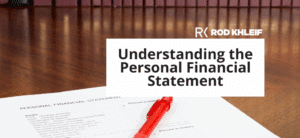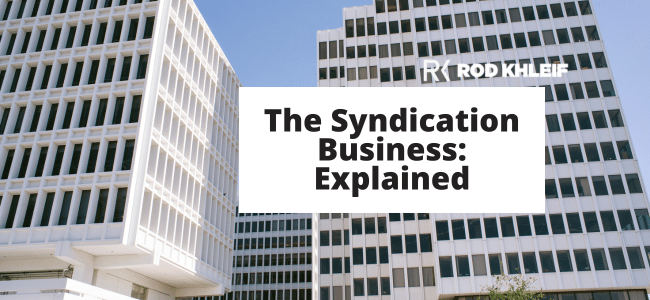The real estate industry is susceptible to unpredictable and inevitable economic downturns. As an investor, it’s crucial to protect your multi-family portfolio against market fluctuations and understand the profound impact these fluctuations can have on your investment strategy.
Effective portfolio management during a recession demands identifying suitable recession-proof investments, a strategic approach that positions investors for resilience in economic uncertainty.
Timing the Market Effectively
Buying low and selling high underlines success in any economic climate, particularly during a slow one. Searching for the best investments during a recession becomes a strategic endeavor in times of economic uncertainty.
It’s about making money during a recession by aligning your portfolio with opportunities that emerge when others may shy away. Through a commitment to research and a focus on due diligence, real estate investors can position themselves to create a robust and resilient portfolio.
Navigating the Supply Landscape
Supply plays a key role in determining market trends, rental rates, and, ultimately, the success of multifamily investments. During economic downturns, understanding supply dynamics becomes even more critical as it can directly affect occupancy rates, rental income, and the overall value of multifamily investments.
The Role of Supply in Multifamily Investing
The availability of housing units directly impacts demand levels, rental rates, and the overall value of multifamily properties. During economic stability, supply and demand typically reach a balanced equilibrium, ensuring a healthy and sustainable real estate market.
However, during economic downturns, supply dynamics can become more complex, as demand for rental properties may fluctuate due to job losses, decreased disposable income, and changing household compositions.
The Impact of Supply on Multifamily Performance
The availability of rental properties significantly impacts the stability and resilience of multifamily portfolios. In markets with abundant supply, excess available housing units can lead to increased competition among landlords, driving down rental rates and potentially resulting in higher vacancy rates. This scenario can pose considerable challenges for multifamily investors, as it can directly affect their rental income streams and the overall value of their properties.
The Importance of Limited Supply
In contrast, markets with limited supply offer greater stability and resilience for multifamily investments. When the demand for rental properties exceeds the available housing units, landlords gain a stronger negotiating position, allowing them to maintain relatively stable rental rates even as economic conditions worsen.
Risk Management and Contingency Planning
Contingency planning is the process of preparing for unexpected events. It involves creating a comprehensive strategy to anticipate, respond to, and recover from unforeseen circumstances that could negatively impact your investments’ performance and stability.
Thorough Portfolio Analysis
Conduct a detailed assessment to identify the strengths and potential vulnerabilities. This includes scrutinizing the performance of individual properties, evaluating market trends, and understanding the overall health of your investments.
Negotiating Favorable Financing Terms
During economic uncertainty, favorable financing conditions can significantly enhance your ability to weather downturns. Explore opportunities to secure lower interest rates, flexible repayment terms, or other concessions that align with your long-term investment goals.
Agile Investment Strategy
Stay open to adjusting your approach based on real-time data and evolving economic trends. An agile mindset allows you to capitalize on emerging opportunities and navigate challenges flexibly, maximizing your chances of success in dynamic environments.
Continuous Education and Networking
Networking with fellow investors, industry experts, and professionals expands your knowledge base and provides a valuable support system. During challenging times, having a network of like-minded individuals can offer insights, collaborative opportunities, and a collective strength that enhances your ability to navigate economic uncertainties successfully.
Diversification and Risk Mitigation
Diversification involves spreading investments across different assets and markets, which helps to minimize exposure to any single economic variable. In the multi-family real estate sector, diversification means investing not only in various properties but also considering different types of multifamily assets, such as apartments, townhouses, and condominiums.
Stay Informed
Regularly monitoring market trends and economic indicators is crucial to staying abreast of changes that may impact a multi-family portfolio. This commitment to ongoing information gathering enables investors to make informed decisions aligned with prevailing market dynamics.
Diversify Property Types
Beyond diversifying across properties, spreading investments across different types of multifamily assets helps reduce vulnerability to specific market fluctuations. It helps you to hedge against the unique challenges that varying property types may encounter during a recession.
Focus on Safe Investments
Prioritizing the safest investments within the multi-family real estate sector is essential during a recession. It might involve concentrating on
affordable housing or properties with robust rental demand, which historically have demonstrated a strong resilience.
Adapt Strategies
The ability to adapt investment strategies based on evolving market conditions is a hallmark of successful recession investing. Staying flexible and adjusting approaches to maximize portfolio stability positions investors to navigate the dynamic landscape of a recession with greater ease.
Recession-Resilient Locations
Location is a crucial factor that must be considered when investing in multi-family properties. Specific, essential considerations can help you make informed decisions about where to invest. Each of them plays a significant role in determining profitability and long-term success.
Income Levels and Affordability
Thoroughly assess the income levels of the local population and the affordability of housing in the area. Choosing markets where residents have relatively stable incomes and affordable housing options ensures a consistent demand for rental properties, even in challenging economic times.
Additionally, consider the affordability of housing in the area. A market where housing costs are not excessively high relative to local incomes suggests that renters will have sufficient disposable income to cover rental expenses, even during periods of economic downturn.
Historical Performance
Conduct a thorough examination of the historical performance of the real estate market in potential investment locations. Look for areas that have demonstrated resilience during past recessions. Studying the market’s track record can provide valuable insights into how it might fare in future economic downturns. Try to favor areas where rental demand has remained strong, and property values have shown resilience, even during periods of economic decline.
Local Government Policies
Areas with proactive and investor-friendly policies tend to attract more stable long-term investments. Be aware of the regulatory landscape, including zoning regulations, building codes, and tax policies, as these can significantly influence the cost and feasibility of developing and managing multi-family properties.
Adaptive Property Management Practices
A crucial strategy lies in adopting an approach that prioritizes strong tenant relationships, and implementing proactive management practices. By nurturing a satisfied tenant base, property owners can weather economic storms and secure a stable rental income stream.
Tenant-Centric Approach
The core of a recession-resistant multi-family property lies in maintaining strong and positive tenant relationships. Implementing tenant-centric practices, such as responsive communication channels, fair and transparent rent adjustments, and community-building initiatives, fosters tenant satisfaction.
Technology Integration
Leverage the power of technology to streamline and enhance property management processes. Executing cutting-edge property management software can significantly improve operational efficiency, reduce administrative overhead, and provide valuable data insights for informed decision-making.
Proactive Maintenance Strategies
Regular property inspections, timely repairs, and preventative maintenance measures preserve the value of your multi-family housing and minimize unexpected expenses. This foresighted approach ensures that your property remains an attractive and reliable option for tenants, even in economic downturns.
Tax Strategies
In addition to the strategies outlined above, there are several tax strategies that you can implement to recession-proof your real estate investments. Taxes play a major role in real estate, and it is important not to overlook them. Some methods can help you reduce your tax liability, improve your cash flow, and protect your assets in an economic downturn.
Maximize Depreciation Deductions
Depreciation is a deduction that allows you to recover the cost of your property over its useful life. This can be a significant deduction for real estate investors, reducing your taxable income by thousands of dollars annually. You should depreciate your property over the longest possible useful life to maximize your depreciation deductions. You should also ensure that you keep accurate records of your property’s depreciation deductions.
Take Advantage of Capital Gains Tax Deferral
You are subject to capital gains tax when you sell a property at a profit. However, several ways exist to defer or eliminate your capital gains tax liability. One way to defer capital gains tax is to reinvest the profits from the sale of your property into another qualifying real estate investment. It’s known as a Section 1031 exchange.
Another way to defer capital gains tax is to donate your property to a charity. You can deduct the property’s fair market value from your taxable income, and you may also be eligible for a charitable deduction.
Use a Self-directed IRA to Invest
A self-directed IRA is a retirement account that allows you to invest in a broader range of assets than traditional IRAs. This includes real estate. Investing in real estate through a self-directed IRA can offer several tax advantages. For example, you can deduct the cost of your property over its useful life, and you can defer or eliminate your capital gains tax liability.
Conclusion
The safest investment during a recession can be multi-family real estate if you plan strategically and build resilience. Remember that a well-constructed portfolio is not just about acquiring properties. Still, it’s about cultivating a financial fortress that can endure market fluctuations and emerge stronger on the other side.












